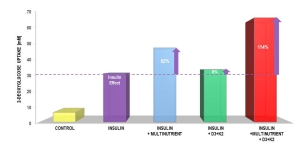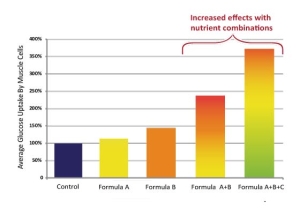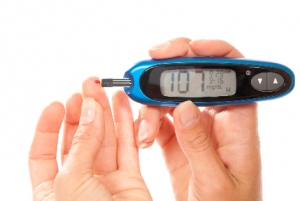Although many chronic health conditions increase the severity of COVID-19, it has been observed that diabetes patients are at significantly higher risk of serious disease, complications, and death from COVID-19. Currently, 1 in 11 adults in the world has diabetes, and it is estimated that by 2050 almost 1 in 3 people will have diabetes or pre-diabetes. More than 34 million Americans have diabetes and 7.5 million have pre-diabetes.
Diabetes is the one of the fastest growing non-communicable diseases worldwide. It is associated with high blood sugar levels, which increases the risk of cardiovascular disease and kidney problems. It increases one’s risk of serious COVID-19 outcomes, as 40% of people who have died of COVID-19 also had diabetes. Currently, 1 in 11 adults in the world has diabetes, and it is estimated that by 2050 almost 1 in 3 people will have diabetes or pre-diabetes. More than 34 million Americans have diabetes and 7.5 million have pre-diabetes. With such staggering statistics, the National Institutes of Health (NIH) has declared November as Diabetes Awareness Month to prevent and effectively manage this disease.
During the current COVID-19 pandemic, we have learned that having diabetes significantly increases one’s chances of developing serious complications which could potentially be life-threatening. Although diabetes has increased globally, it has exponentially risen in the developing countries due to sedentary lifestyles, and fast food diets rich in artificial sugars and fat which can lead to obesity and other disorders. Obesity, high blood pressure, high cholesterol, and impaired glucose metabolism are now collectively called metabolic syndrome.
During the current coronavirus pandemic, diabetes has become a serious concern. People with type 1, type 2 and pregnancy-related (gestational) diabetes are at a higher risk of developing serious complications from COVID-19 which could potentially be life-threatening. Having diabetes reduces a person’s immunity and thereby increases the chances of contracting any viral or bacterial infection and having delayed recovery.
You may be surprised to learn that the fastest growing disease in the world today is diabetes. Every day approximately 5200 Americans are diagnosed with diabetes1, which results in hundreds of cases of leg amputations, blindness, and kidney failures. Worldwide, diabetes is one of the most common non-communicable diseases and is at the forefront of the public health challenges the world faces this century. In the last two decades, the number of people suffering from diabetes has skyrocketed and it is projected to increase from 171 million in 2000 to 438 million in 2030.
According to a recent study published in The Lancet medical journal, the number of people diagnosed with diabetes has increased four times in the past 35 years1. There were 108 million people diagnosed with diabetes in 1980 and 422 million in 2014. Based on this alarming statistical finding, the World Health Organization (WHO) selected diabetes as the theme for World Health Day 2016 in order to raise awareness and to prevent and effectively manage diabetes.





